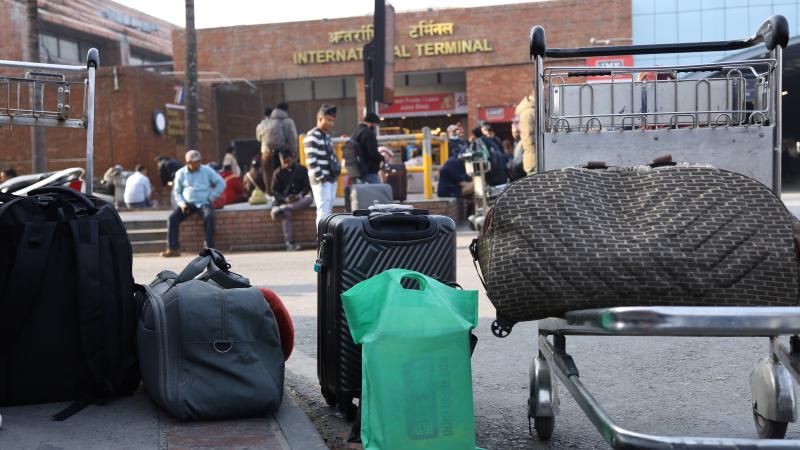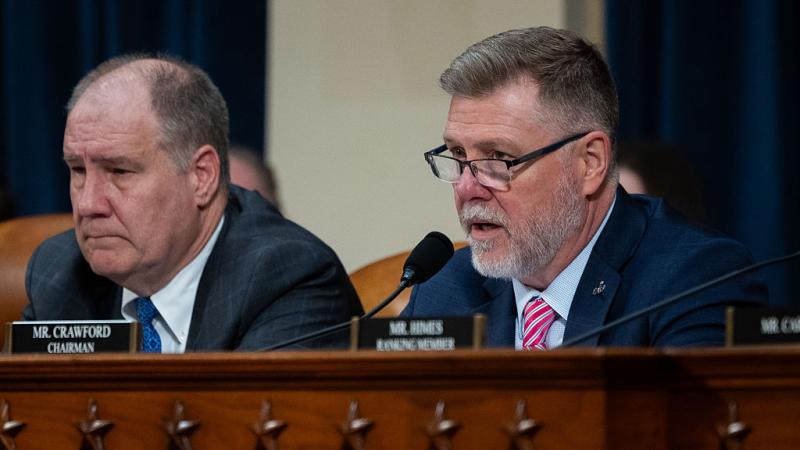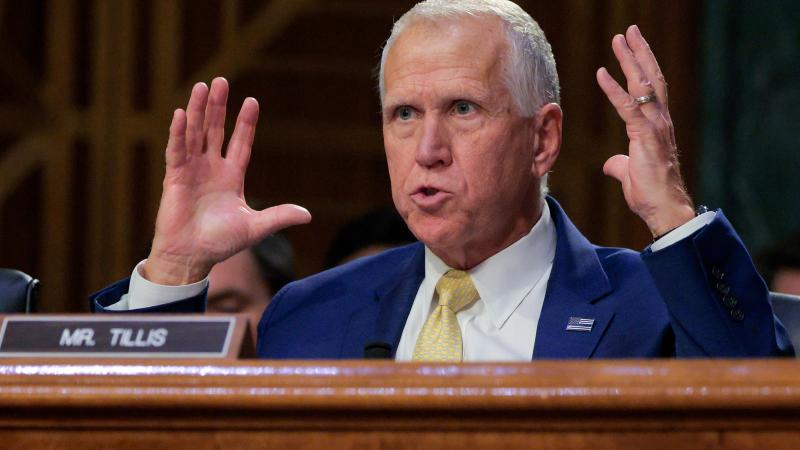As thought leaders meet in Swiss Alps to ponder world economic issues, Trump still seen as linchpin
Hardly a single panel discussion took place without the name of the presumptive Republican nominee for president coming up in some way.
As leaders in commerce, government and academia gathered recently in the Swiss Alps to ponder the world's most pressing economic issues, nearly every conversation seemed to come back to how America, an ocean away, would figure into the mix if Donald Trump returns this year as the country's president.
Hardly a panel discussion at the 54th annual World Economic Forum – whether it be focused on the war in Ukraine, climate change, the attacks in the Red Sea, or artificial intelligence – could take place without the name of the presumptive Republican nominee for president coming up in some way.
The consensus? Trump is likely to beat Democrat incumbent Joe Biden in November and return to the White House for a second term, and – for at least a few of those in attendance – that wouldn’t be all that big of a problem.
To be sure, Trump will never be celebrated at the World Economic Forum, which was founded in 1971 and concluded late last week.
The summit’s mission statement says it is focused on internationalism and “public-private cooperation,” yet when Trump attended in person in 2020 he told leaders not to be too reliant on global teamwork and to “put their own citizens first.” Trump also reportedly told European Union officials in Davos the U.S. would not come to their aid if Europe came under attack.
Two years earlier, Trump’s penchant for unscripted remarks (before arriving at the forum he repeatedly called the nations of African “shithole countries”) prompted a walkout by African representatives during his remarks in Davos. The New York Times that year called Trump a “Fox in the Globalist Henhouse.”
Few in Davos were cheering for Trump’s return to power this time around, but many – especially among executives and analysts from the U.S. – thought the world should prepare for a Trump victory in November, for better or for worse.
Christine Lagarde, head of the European Central Bank, said Europe should strengthen ties between member states to be prepared for a potential Trump administration.
“The best defense, if that’s the way we want to look at it, is attack,” Lagarde said. “To attack properly we need to be strong at home. Being strong means having a strong, deep market, a real single market.”
Lagarde’s remarks were not far off from Trump’s views as president, when he repeatedly said Europe should be less dependent on the U.S. for its economic resiliency and defense.
Chinese premier Li Qiang, meanwhile, used the forum in Davos to blast what he called “discriminatory trade and investment measures” – something he said risked rippling the global economy.
Li’s statements were interpreted as a swipe at Trump, who said that as president he would call for a 10% tariff on all imports, and more on products from China.
But some said Trump's name came up so often in Davos because he struck a nerve with his controversial remarks over the years.
“I don't like how Trump said things, but he wasn't wrong about some critical issues,” said Jamie Dimon, president and chief executive of investment banking giant JPMorgan Chase. In specific terms, Dimon mentioned the relevance of NATO, problems tied to illegal immigration, tax reform, global economic challenges, and the threat of China.
Dimon also had a warning for supporters of Biden, who will almost surely face Trump in a 2020 rematch this November.
“I wish the Democrats would think a little more carefully when they talk about” the Make America Great Again movement,” Dimon said. “I think the negative talk about MAGA is going to hurt Biden’s election campaign.”
The Facts Inside Our Reporter's Notebook
Links
- panel discussion
- presumptive Republican nominee
- return to the White House
- wouldnât be all that big of a problem
- public-private cooperation
- put their own citizens first
- the U.S. would not come to their aid
- a walkout by African representatives
- Fox in the Globalist Henhouse
- To attack properly we need to be strong at home
- discriminatory trade and investment measures
- 10-percent tariff on all imports
- but he wasn't wrong about some critical issues
- I think the negative talk about MAGA
















